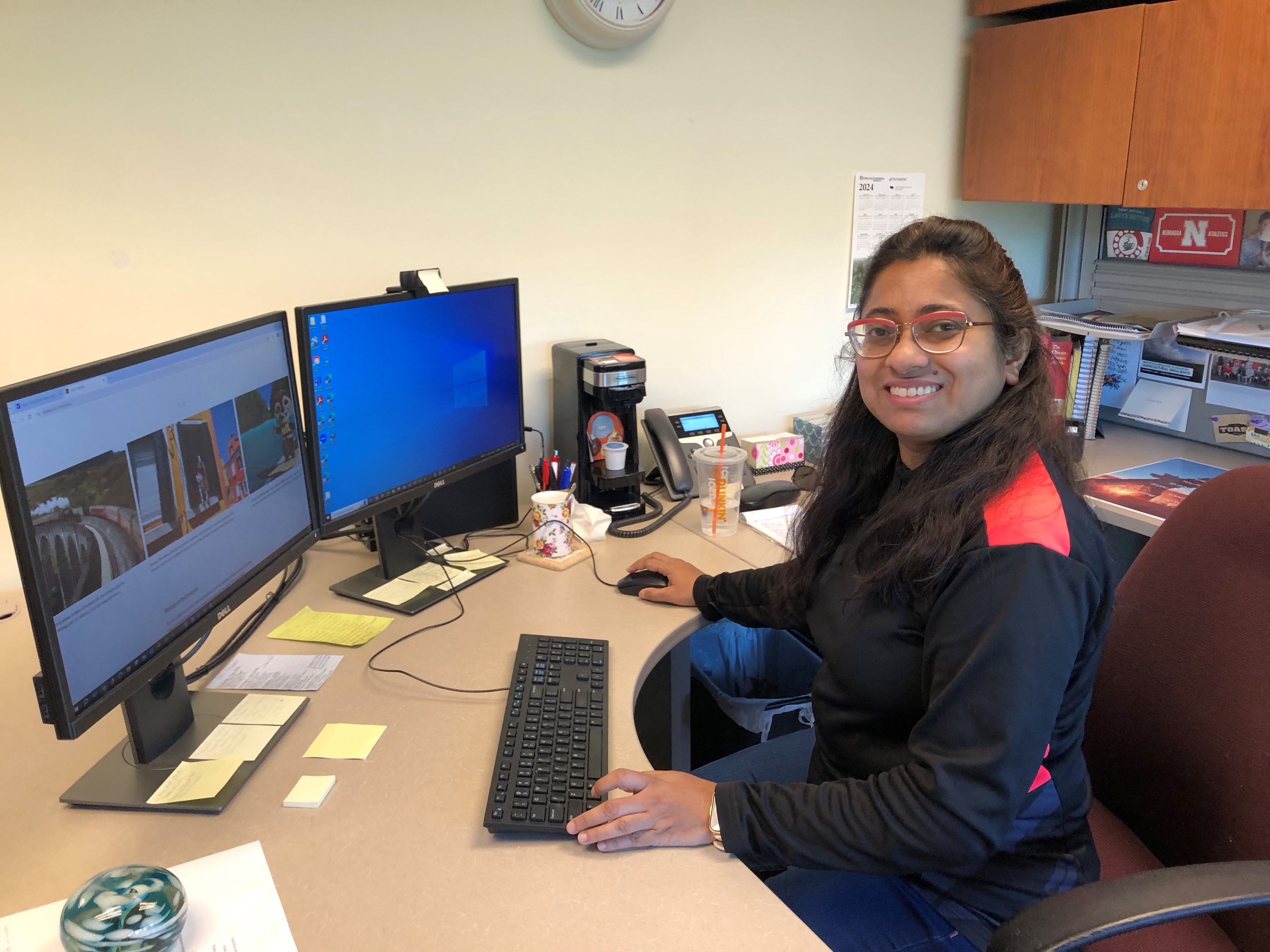
By Ronica Stromberg
Sruti Das Choudhury, image analysis specialist, received a Faculty Inclusive Excellence Award at the CASNR Awards Luncheon on May 10, 2024.
The School of Natural Resources research associate professor has been teaching presession courses on computer vision, machine learning and artificial intelligence for the past three years to students from all backgrounds.
She designed the courses so that even students who had never coded could learn to use artificial intelligence tools introduced since 2022 and work with Python and MATLAB.
"I wanted to frame the courses in such a way so that students of all disciplines, all majors, even all stages of their career, can take help of these tools and implement computer vision and machine learning techniques right away and overcome the challenges and fears of programming," Das Choudhury said.
She had noted students not majoring in computer science had a fear of programming but needed programming work done to reach their goals. They often relied on others to perform programming tasks she said they could have learned easily with the correct method of teaching.
Having served as a postdoctoral researcher in the School of Computing and earned her doctorate in computer science engineering from the University of Warwick in England, Das Choudhury designed the new courses and, with funding of the Office of the Executive Vice Chancellor, opened them to students across the university.
In the courses, she teaches students to use computer vision and AI tools without going into details about their theoretical backgrounds.
So far, students from 12 units, such as the School of Natural Resources, Civil and Environmental Engineering and the Department of Mechanical and Materials Engineering, have taken the courses.
They gave the courses the highest rating for all three years, with class sizes ranging 20-25 students.
"It is inspiring to observe Sruti in action," said Tala Awada, associate dean in the Agricultural Research Division. “She is authentic and has a genuine interest in building AI and computer vision skills of IANR students with little or no background in the domain. She meets everyone where they are and creates a student-specific plan to help them succeed."
Awada and Larkin Powell, director of the School of Natural Resources, supported Das Choudhury with letters of support for the award. Ashok Samal, computer science professor, nominated her.
In her research, Das Choudhury uses computer vision and AI techniques to analyze plant images to determine traits much quicker than could be done by humans on the ground. She collaborates internationally on such work and sees the need for increasing use of computer advances.
"Artificial intelligence must not be confined to only computer science major students,” she said. “It is for everybody. Ten years from now, every organization will request some sort of data literacy. Society is going in that direction, like data scientific knowledge and AI tools will be required. So, I want students from across universities to be competitive in the job market, to be top in the research sector and at the top of the academic sectors."
That has been her goal and her purpose and she has been happy to see them met with students, she said.
"They just proactively use these techniques in their research by themselves,” she said. “It excited them, and it excited me as well because it was a good feeling that I'm pleased that my main ambition of teaching these subjects basically has been fulfilled."
As a recipient of the Faculty Inclusive Excellence Award, she received $5,000 and a plaque.
The award is part of the Holling Family Teaching Excellence Awards recognizing exceptional teaching in the Institute of Agriculture and Natural Resources since 1998. The Holling family established the awards program in honor of John Holling, a Nebraska electrical engineering graduate from 1912, and his brother, Gustave Holling, who attended the College of Agriculture before going on to farm near Wood River.